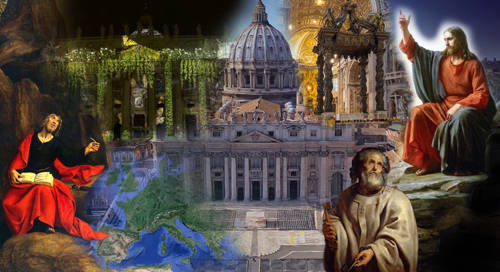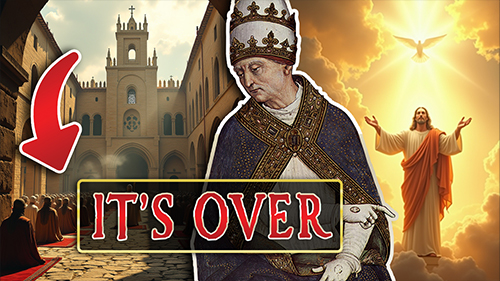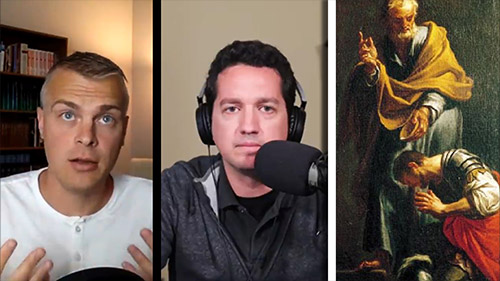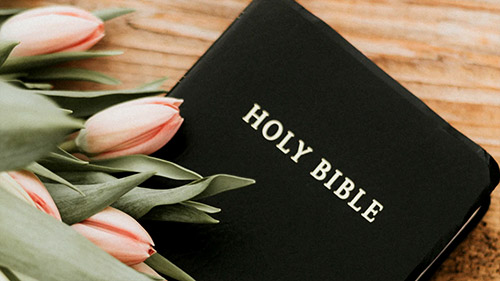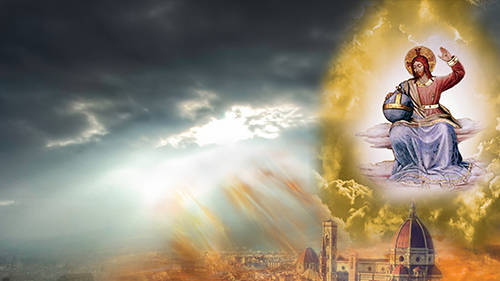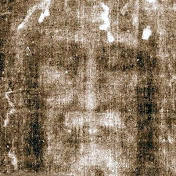 | vaticancatholic.com - English Channel |
Download Audio — File Size: 57.0 MB — Duration: 59:08 Bible & Apologetics | Faith & Doctrine | Featured Videos | Spirituality & Prayer Introduction Consider that thou are dust and to dust thou shall return. The day will come when you shall die and rot in a grave. The same fate awaits all, high and low, the prince and the peasant. As soon as the soul shall have left the body with the last gasp, it will go into eternity and the body will return to dust. Picture to yourself a man who has recently expired; behold that corpse lying in the bed, the head fallen on the chest, the hair disordered and bathed in the sweat of death. The eyes sunken, the cheeks hollowed, the tongue and the lips the color of lead; the body grows cold and heavy. The beholders grow pale and tremble. How many at the sight of a deceased parent or friend have changed their life and left the world? But still more horrible is it when the body begins to decay. Twenty-four hours have not elapsed since the death of that youth, and an offensive odor is already perceptible. The windows must be open and incense must be burnt and haste must be made to transfer the body to the Church and to bury it, that the whole house may not be infected. And if that body has belonged to one of the great or rich ones of the Earth, it will only send forth a more intolerable stench. Behold to what that proud man has become: the favorite, the desired one of society, now becomes the horror and the abomination of all who behold him. His relations hasten to remove him from the house and people are hired to bear him away that - enclosed in a coffin - they may cast him into a grave. Formerly, he was renowned for his talents, his elegance, his graceful manners, and his wit; but no sooner is he dead than he is forgotten. On hearing the news of his death, some say he was an honor to his family; others, he has provided well for his family. Others grieve because the departed had done them some service. Some rejoice because his death brings some advantages to them. However, in a short time, no one will name him anymore. In the visits of condolence other things are talked of, and if anyone should chance to allude to the departed, the relations exclaim: “For mercy's sake, never name his name to me.” Consider that as you have done at the death of your friends and relations, so will others do by you. At first, relations are afflicted for some days, but they quickly console themselves with that share of property which falls to them. So that in a short time they will rejoice at your death and in that very room where you have breathed forth your soul and been judged by Jesus Christ, they will dance, eat, play and laugh as before. And your soul - where will it be then? But that you may see more clearly what you are, O Christian soul, go to a sepulcher; contemplate dust, ashes, worms inside. Behold how that corpse first becomes yellow - and then black. Afterwards the whole body is covered with a white and disgusting mold. Then there issues forth a slime which flows to the Earth. In that corruption, a multitude of worms is generated which feed on the flesh. The rats feast on the body, some on the outside, others enter into the mouth and bowels. The cheeks, the lips, the hair fall to pieces. The ribs are first laid bare, then the arms and legs. The worms, after having consumed all the flesh, devour each other and at last nothing remains of that body but a skeleton which in time crumbles in pieces, the bones separate, and the head falls from the trunk. See then what a man is? A little dust on the barn floor which is carried away by the wind. In this picture of death, behold yourself, and what you will one day become. Remember that thou are dust and to dust thou shall return. Consider that in a few years, perhaps a few months or days, thou will become rottenness and worms. All must come to an end and if when you die your soul is lost, all is lost for you. St. Bernard says: “Look on the sins of youth and blush, look on the sins of manhood and weep, look on the present disorders of thy life and tremble, and amend.” Behold the graves of the dead and say to yourself: if these could live again, what would they not do for eternal life? And I who have time, what do I do for my soul? In the world those only are esteemed happy who enjoy the goods, the pleasures, the riches and the pomps of this world - but death puts an end to all these joys of Earth. For what is your life? It is a vapor which appears for a little while, James 4:15. Behold that man courted today feared and almost worshipped, tomorrow when he is dead he will be despised, reviled and trampled upon. When death comes we must leave all. When the body is laid in the grave the flesh falls off and behold his skeleton can no longer be distinguished from the other skeletons. Go to the grave, says St. Basil, and see if you can there discover who has been servant and who has been master. On this Earth men are born unequal but after death all become equal. That which has happened to your forefathers will happen also to you. They've inhabited your home, they've slept in that very bed, but now they are no longer there. The same will happen to you. All know that they must die, but many are deceived by picturing to themselves death at such a distance, as if it could never come near them. “It is appointed onto men once to die”, Hebrews 9:27. The sense of death is written against all men. Death alone is certain, says St. Augstine. All other goods or evils are uncertain. It is uncertain whether the newborn infant will be poor or rich, whether he will have good or bad health, whether he will die young or old. All is uncertain; but it is certain that it shall die. If then you should live all the days you reckon upon, still a day must come and of that day an hour which will be the last for you. Who is the man who shall live and not see death? There has never been a man so mad as to flatter himself that he should never die. That which has happened to your ancestors will happen also to you. Of all those who at the beginning of the last century lived in your country, behold, not one is living. Even the princes and monarchs of the Earth have changed their abode. Nothing remains of them but a marble mausoleum with a grand inscription which now only serves to teach us that all that is left of the great ones of this world is a little dust enclosed in a tomb. It is appointed, it is then certain, that we are all condemned to death. And every step we take brings us nearer to death. As your name has been one day registered in the book of Baptism, so it will one day be registered in the book of death. As you now speak of your forefathers: the blessed memory of my father, of my uncle, of my brother, so will your successors also say of you. As you have heard the bell toll for others, so will others hear it toll for you. Look then at the corpses, each of which says to you: yesterday for me, today for thee. The same is said to you by the portraits of your deceased relations, their beds, the clothes they have left behind them. In every age, houses, streets and cities are filled with new people, and the former ones are carried out to be enclosed in the tomb. So will the time come when neither I nor you nor anyone now living will exist any longer on this Earth. We shall then all be in eternity, which will be for us an eternal day of delights or an eternal night of torments. There is no middle way. It is certain, and of faith, that one or the other lot will be ours. And in truth, with death present to them, the Saints have despised all the pleasures of this world. St. Charles Borromeo kept always on his table a skull that he might continually contemplate it. All the gains and riches of this world terminate in a dying gasp, a funeral and a descent into the grave. The house you have built will be given up to others; the tomb will be the habitation of your body till the day of judgment, and from thence it will pass to Heaven or Hell where the soul will already have preceded it. The Uncertainty of the Hour of Death It is certain that we shall all die, but when is uncertain. Nothing is more certain than death and nothing is more uncertain than the hour of death. Already is the year, the month, the day, the hour, the moment fixed in which you and I are to leave this world and to enter into eternity. But this time is unknown to us. Imagine yourself with a sick person who only has a few hours to live. Behold how he is oppressed with pains, faintings, suffocation, want of breath, cold sweats and weakness of head. To such a degree that he can hardly hear, understand, or speak. Among his miseries, the greatest is that death approaches and instead of thinking of his soul and preparing himself for eternity, he only thinks of physicians and remedies to free him from the pains that are killing him. If at least his relations and friends forewarn the dying man of his danger. But no, there is not one among them who has the courage to announce to him his approaching end and to advise him to receive the last sacraments. Everyone refuses to tell him for fear of frightening him. But in the meantime, although no warning is given him of his death, the dying man nevertheless seeing all the family in disorder, the frequent medical consultations and the numberless and violent remedies that are adopted, is filled with confusion and terror; and amidst continual attacks of fear, remorse and distrust, says within himself: alas, who knows, but the end of my days is come. What then will be his feelings when he really receives the announcement of his death! What distress when he hears the words: “Sir, your illness is mortal, you must receive the sacraments, make your peace with God and bid farewell to the world.” Oh fool that I have been, the poor suffer will then say. I might have been a Saint with all the lights and opportunities which God has given me. I might have led a life of happiness in the grace of God. And now what remains of me, of the many years that I have passed - but torments, distrusts, fears and accounts to render to God. And hardly can I hope to save my soul. And when will he say this? When the oil of the lamp is nearly consumed. And the scene of this world is about to close; when he is already in sight of the two eternities, happy and unhappy. When he is near that last gasp upon which depends his being in bliss or despair forever, as long as God is God. What terror will it then be for him to think and say: “This morning I am alive. This evening most likely I shall be dead. Today I am in this room. Tomorrow I shall be in the grave. And my soul, where will it be?” What terror when he sees the candle prepared, when he perceives the cold sweat of death appear! When he hears his relations ordered to withdraw from his room and return no more, when his sight begins to fail and his eyes to darken. What terror, for death is already approaching. Consolation of Death Death viewed according to the senses terrifies and causes fear, but when viewed with the eyes of faith it consoles and becomes desirable. “What”, says St. Augustine, “is a continuation of life but a continuation of suffering?” Our present life is not given for our repose but for our labor; and by labor to merit eternal life. The torments that afflict sinners at the hour of death do not afflict the Saints. The Saints are not afflicted at leaving the goods of this world, since they have kept their hearts detached from them. The present life is a continual war with Hell, in which we are all in constant danger of losing Our Lord and Our God. This danger caused St. Peter of Alcantara to say when he was dying, to a religious who in assisting him, touched him: “My brother, keep away from me because I am still living and in peril of being damned.” This danger likewise caused St. Teresa to be comforted each time that she heard the clock strike, rejoicing that another hour of combat had passed. For she said, “In every moment of life I may sin and lose God.” What a special consolation will it then be to remember the honors paid to the Mother of God; the Rosaries recited; the fasts on Saturdays. Mary is called Virgin Most Faithful. Oh how great is her fidelity in consoling her faithful servants at the hour of death. A certain person devoted to the Blessed Virgin said in dying, “You cannot conceive what a consolation at the hour of death is the thought of having served our Blessed Lady. If you could but know what happiness I experience in having served this dear Mother! I know not how to express it.” St. Bonaventure says, “He who neglects the service of the Blessed Virgin will die in his sins. He who does not invoke thee, O Lady, will never get to Heaven. Not only will those from whom Mary turns her countenance not be saved, but there will be no hope of their Salvation.” No one can be saved without the protection of the Blessed Virgin Mary. St. Alphonsus said, “If you persevere till death in True Devotion to Mary, your Salvation is certain.” And St. Louis de Montfort said, “A true child of Mary has never been lost.” The Particular Judgment On the Particular Judgment. Let us consider the soul's appearance before God, the accusation, the examination and the sentence. At first, with regard to the appearance of the soul before the Judge. It is a common opinion among theologians that the particular Judgment takes place at the very moment in which a man expires, and that in the very place where the soul is separated from the body she is judged by Jesus Christ. Criminals have been known to fall into a cold sweat when brought into the presence of an Earthly Judge. What a grief is it to a child or a subject to behold a parent or a prince seriously offended. But oh, how much greater a pain will it be for that soul to behold Jesus Christ, whom she despised during life. So following death a person will have an immediate Particular Judgment, and the soul will be sent to Heaven, Hell or Purgatory. St. Paul tells us in Philippians 2:13 to work out your Salvation with fear and trembling. And our Blessed Mother tells us: His Mercy is from generation to generation, on those that fear him. Fewness of the Saved On the fewness of the saved. Several of the Fathers of the Church consider that from the fact that at the time of the Deluge only eight persons were saved, at the destruction of Sodom and Gomorrah only four, and of the 600,000 able men who departed out of Egypt, not more than two reached the Promised Land (the others all dying in the desert), it may be concluded that the number of the elect among Christians will be proportionately small. Here are some of the teachings of the Fathers, Doctors and Saints of the Church, concerning the final destiny of people. “It is certain that few are saved,” St. Augustine. “The majority of men shall not see God,” St. Justin the Martyr. “Those who are saved are in the minority,” St. Thomas Aquinas. “The greater part of men choose to be damned rather than love Almighty God,” St. Alphonsus. “Among adults there are few saved because of sins of the flesh. With the exception of those who die in childhood, most men will be damned,” St. Remigius of Reims. “Out of a hundred thousand sinners who continue in sin until death, scarcely one will be saved,” says St. Jerome. If you die outside the Catholic Church you will go to Hell. Pope Eugene IV, in the year 1441, in the ex cathedra Bull, “Cantate Domino” at the Council of Florence, stated the following: “The Holy Roman Church firmly believes, professes and preaches that all those who are outside the Catholic Church, not only pagans but also Jews or heretics and schismatics, cannot share in eternal life and will go into the everlasting fire which was prepared for the devil and his angels, unless they are joined to the Church before the end of their lives; and that the unity of this ecclesiastical body is of such importance that only those who abide in it do the Church’s sacraments contribute to salvation and do fasts, almsgiving and other works of piety and practices of the Christian militia productive of eternal rewards; and that nobody can be saved, no matter how much he has given away in alms and even if he has shed blood in the name of Christ, unless he has persevered in the bosom and unity of the Catholic Church.” The majority of Catholics will go to Hell. “The greater number of Christians today are damned. The destiny of those dying on one day is that very few, not as many as 10, went straight to Heaven, many remain in Purgatory, and those that were cast into Hell were as numerous as snowflakes in midwinter,” Blessed Anna Maria Taigi. Why do most Catholics go to Hell? “Bad confessions damn the majority of Christians,” St. Teresa of Avila. Most priests go to Hell. “I do not speak rashly but as I feel and think, I do not think many priests are saved, but that those who perish are more numerous,” St. John Chrysostom. St. Vincent de Paul said: “I tremble when I think of the number of souls that live in a constant state of damnation.” Children and young people go to Hell. St. Gregory the Great relates that a child, five years old, who had arrived at the use of reason, was seized by a Devil for having uttered a blasphemy, and carried in the Hell. Another boy of eight died after his first sin, and was lost forever. The Holy Mother of God revealed to that great Servant of God, Benedicta of Florence, that a girl of twelve was damned after her first sin. The most graphic description of Hell was given by Our Lady of Fatima to three shepherd children in the year 1917 in Portugal. The following is what the children saw: “Our Lady opened her hands and rays of light seemed to penetrate the earth. And we saw as it were a sea of fire. Plunged in this fire were demons and souls in human form, like transparent burning embers all blackened or burnished bronze. Floating about in the fire now raised into the air by the flames that issued from within themselves. Together with great clouds of smoke now falling back on every side. Like sparks in huge fires, without weight or equilibrium, amid shrieks and groans of pain and despair which horrified us and made us tremble with fear. The demons could be distinguished by their terrifying and repellent likeness to frightful and unknown animals, black and transparent like burning coals. Terrified, we looked up at Our Lady who said to us so kindly and so sadly, ‘You have seen Hell where the souls of poor sinners go. To save them, God wishes to establish in the world devotion to my Immaculate Heart.’” Our Lady of Fatima tells us, “More souls go to Hell for sins of the flesh than for any other sin.” She also stated, “Many marriages are not good, they do not please Our Lord and are not of God.” Sister Lucia of Fatima stated, “Taking into account the behavior of mankind, only a small part of the human race will be saved.” Lucia relates to us her conversation with Jacinta, “Jacinta, what are you thinking of?” Jacinta replied, “About the war which will come. So many people will die and almost all of them will go to Hell.” Our Lord tells us that few are saved, “Lord are there few that are saved?” But He said to them, “Strive to enter by the narrow gate, for many I say to you shall seek to enter and shall not be able,” (Luke 13:23). “Enter ye in at the narrow gate, for wide is the gate and broad is the way that leadeth to destruction, and many there are who go in thereat. How narrow is the gate and straight is the way that leadeth to life, and few there are that find it,” (Matthew 7:13). 1 Peter 4:18 says, “And if the just man shall scarcely be saved, where shall the ungodly and the sinner appear?” It is not that God does not love men, but men do not love God. It is not so much what men do, but what they fail to do that sends them to Hell. It is not so much that they were bad, but more the case that they weren't good enough. The Last Judgment On the Last Judgment. We will first describe the resurrection of the good and then that of the damned. Awakened by the solemn sound of the trumpet, all the souls of the just will come down from Heaven and accompanied by their guardian angels, to take themselves to the spot where their remains were interred. The graves will be open, and in them the bodies will be seen lying, incorrupt but yet lifeless. The body of every good man will rest in the grave as if he were asleep. Then through the power of God, the body will be reunited to the soul and in that same instant return to life. What will be the astonishment of the body when it finds itself alive again and molded in so beauteous a form. Soul and body will greet each other lovingly and embrace each other affectionately with heartfelt emotion. The soul will speak thus to the body: “How earnestly I've longed for thee, how I've desired to see this day. Now I will conduct thee to the regions of Heavenly bliss that we may rejoice together forevermore.” Thus body and soul will rejoice together with inexpressible satisfaction. Then the holy guardian angels will congratulate these blessed beings and exult with them over their joyous resurrection. In all cemeteries and places where many persons are buried, the blessed will arise first with resplendent glorified bodies. Jesus Christ's words state, “Wonder not at this, for the hour cometh wherein all that are in the graves shall hear the voice of the Son of God and they that have done good things shall come forth to the resurrection of life but they that have done evil unto the resurrection of judgment.” And as in every graveyard, there are many persons to rise again and among these a considerable number will be good and just. Imagine the pleasure it will be to see one another again, arrayed in such shining glorious bodies. The resurrection of the wicked will follow immediately upon that of the just - but oh how different will it be. In every burying-ground all the lost souls will assemble whose bodies have been interred there, and they will be compelled again to assume them and reunite themselves to them. What will be the reluctance, the disgust, wherewith they will do this. When the soul sees her own body she will shrink back from it with the utmost repulsion, so hideous will it be. And she will feel that she had rather go straight to Hell than again unite herself to it. For the bodies of the reprobates will resemble devils more than men, so frightful, so loathsome, so offensive will they be. Yet, however the soul resists and opposes the reunion of her body (now so hideous), she must submit to it for God compels her to it. Then the soul will say: “Thou accursed body! I have already for several hundred years had to endure the torments of Hell and now I must return with thee to the everlasting burning. Thou are to blame for all this misfortune. I gave thee good counsels but you wouldn't follow them. Therefore you are lost forever. Alas for me unhappy soul that I am. Alas for me now and forevermore.” And their bodies will be so hideously ugly, so disgusting in appearance, that they will shudder at the sight of one another. Who can describe the mourning that will prevail among these suffering creatures. Bethink thyself, whoever you are who hears this, what awful despair would seize upon thee if thou were among the number of these lost souls. “Alas, what have we done? Woe to us most miserable ones.” “Cursed be thou my wife who did provoke me to sin. Cursed be you, my children, who are the cause of my damnation. Cursed be you, my friends and acquaintances, for you were the occasion of this calamity that has come upon me. Cursed forever be all those who have been partners of my life and partners of my sin.” Whenever you pass by the cemetery of the place in which you live, remember that you will be laid to rest in the grave until the General Resurrection. Wherefore, make good use of the brief period of life that thou may be numbered among the just and arise with them to everlasting blessedness, and not with the damned to everlasting torments. Then will come the final sentence at the Last Judgment. First, will come the Accuser, the Devil. St. Augustine says: “The Devil will stand before the tribunal of Christ. He will charge us to our face with all that we have done, the day and the hour in which we have sinned. He will recite the words of thy profession”, that is to say, he will bring forward our own promises, in which we have afterwards failed. And he will charge us with all our sins, pointing to the day and the hour in which we have committed them. Then he will say to the Judge, “Lord, he left Thee who has died to save him, and he made himself my slave. Therefore he belongs to me." But let us proceed. Now comes the sentence. Jesus Christ will first turn to the elect and address to them those consoling words: “Come ye, blessed of my Father, possess the Kingdom prepared for you from the foundation of the world.” When it was revealed to St. Francis of Assisi that he was among the elect, he was beside himself with joy. What joy will it be then to hear the Judge say, “Come ye blessed children, come to the Kingdom prepared for you. For you there are no more pains, no more fears. You are and shall be safe forever.” On the other hand the damned, turning to Jesus Christ, will say to Him, “And we wretches, what will become of us?” The Eternal Judge will say, “As for you, since you have renounced and despised my grace, depart from Me you cursed into the everlasting fire. Depart from Me, for I will neither see nor hear you anymore. Go and go with My curse upon you, since you have despised My blessing.” And where, O Lord, are these miserable wretches to go? Into the fire, to Hell, to burn both soul and body. And for how many years or for how many ages? For all eternity - as long as God shall be God. After this sentence, the damned, says St. Ephrem, shall bid farewell to the Angels, the Saints, their relations and to Our Lady. Farewell ye, Just. Farewell Heaven. Farewell fathers and children, since we shall never more behold you. Farewell also, O Mary Mother of God. And thus in the midst of the valley, a great pit will be opened into which all the Devils and damned shall fall together. Those gates close after them, which shall never more be opened - never, never, for all eternity. Oh accursed sin, to what a miserable end thou will one day conduct so many miserable poor souls! O unhappy souls for whom this lamentable end is reserved. Pains of Hell On the pains of Hell. It is of faith that there is a Hell. In the middle of this Earth is this prison reserved for the punishment of those who rebel against God. What is Hell? It is a place of torments, a place of torments where all the senses and powers of the damned shall have their appropriate torment. And the more a person has offended God in any particular sense, so much more shall he be tormented in that sense. With what compassion should we hear that a poor man was enclosed in a dark pit for his whole life, or for 40 or 50 years. Hell is a pit enclosed on every side where no ray of the sun or any other light ever enters. The sense of smell shall be tormented. We read in the life of St. Martin that the evil one appeared to him on one occasion and the stench that filled the room was so overwhelming that the Saint said to himself, “If one single devil has such a disgusting odor, what can the stench be in Hell where there are thousands of devils all together?” In Hell, they’ll be laid over one another, heaped up together like sheep in the winter season. Nay more, they will be like grapes crushed under the press of the wrath of God. From this shall also come the pain of immobility. “Let them become immovable as a stone,” Exodus 15:16. Thus, as the damned fall into Hell at the Last Day, so they will have to remain without ever changing their position and without moving hand or foot as long as God is God. The hearing shall be tormented by the continual howling and wailing of those despairing wretches. The devils will make perpetual noises. How painful is it to one who wishes to sleep to hear the continual moaning of a sick person, the barking of a dog, or the crying of a child. Unhappy souls who are condemned to hear continually - for all eternity - the cries and howls of those tortured wretches. We know that men often sin through intemperance, greedily indulging themselves in food and drink. Consequently, God has appointed a severe penalty for this sin in the next world. Christ foretells it, indeed, in the words, “Woe to you that are filled for you shall hunger,” Luke 6:25. It is impossible for us to form a true idea of the pangs of hunger since we have never felt them. If for a whole day one has nothing to eat, the time seems very long and one wants some food very much. And if one were deprived of any nourishment for two or three days, what misery would it be. But if a man had nothing whatever to eat for a whole week and were left a prey to hunger, what would become of him? Besides hunger, the damned suffer the most burning thirst, which it is beyond the power of words to describe. Everyone knows how terrible are the sufferings caused by thirst; they are simply unbearable. Those who are plagued by thirst will drink from the most impure sources. And if nothing at all can be obtained to quench their thirst, a lingering and painful death is the result. The thirst suffered by the lost souls is infinitely greater, more intense, more painful than any thirst experienced on Earth. If mortal man could feel it, even for a brief period, he would faint away and die immediately. There is never any rest for the damned, they are driven from one torment to another unceasingly. This occasions thirst. But the heat of Hell fire wherein they burn day and night forever and ever is the principal cause of this intolerable thirst that consumes them. They are immersed in flames and never do they obtain the refreshment of water. How great their thirst must be! Listen to the appeal of a lost soul earnestly imploring a single drop of water, “Father Abraham, have mercy on me and send Lazarus that he may dip the tip of his finger in water to cool my tongue, for I am tormented in this flame.” “Most merciful God, I ask only for water, I crave only one drop of water to give momentary relief to my burning tongue. Thou will not refuse so moderate a request - Thou who are praised by all creatures as goodness itself.” But this supplication is in vain. God turns a deaf ear to the voice of their entreaty. Not a single drop of water is given to mitigate their sufferings. To still the intolerable pangs of hunger, people will devour whatever they can lay their hands on: grass, leaves, unclean and disgusting animals. Men have been driven even to feed on the flesh of their fellow men, mothers to sacrificing their children, and some have been known to gnaw on their own flesh. They drag on until all their strength is consumed. Finally, through the torture of starvation, they lose their senses. They rave and cry and howl and die the most miserable of deaths. If such are the effects of hunger upon Earth, what would be the hunger which will be experienced in Hell? If want of food for a few days only causes such torture, what will a continual and never-ending hunger be like? Who can think without horror at the hunger suffered in Hell? Some other torments of Hell. The venerable Bede relates the following story of a man who was dangerously sick and one night was thought to be dead. The next morning he recovered consciousness to the astonishment of all who are with him and rose from his sickbed saying that God had granted him an extension of days in order that he might lead a different life. After dividing his property among his children and giving a portion of it to the poor, he entered upon an excessively different mode of life. Shutting himself up in a small tent beside a river, he spent his days and nights in weeping. In wintertime he plunged up to the throat in the icy waters of the river, and then shivering and benumbed by the cold he immersed himself in hot water, which caused him such agony that he could not restrain his cries. When questioned as to the reason of his strange conduct and how he could possibly bear the sudden alternations of extreme heat and extreme cold, he replied: “I have seen worse things than that.” What did you see?” the others asked him. And he replied: “I have seen how the unhappy souls in another world are cast out of a raging fire into icy cold and from icy cold back into the burning flames. When I realize what they have to endure, I count my slight sufferings as nothing.” This story related by such a holy man as venerable Bede shows how terrible indeed are the torments of Hell. On the smoke of Hell. In this horrible darkness the damned lie helpless as blind men - or as those who have had their eyes cruelly put out. They see nothing, for smoke stings their eyes and the poisonous fumes of sulfur destroy their sight. We know how dense this smoke is from the account given by St. John, in Apocalypse 14:11. Thou knowest how disagreeable smoke is to the eyes and nostrils. In fact, no one can remain in it for a quarter of an hour without suffocating and being half blinded. If this is so on Earth, what will it be like in Hell? Even in this life the pain of fire is the greatest of all pain; but the difference between our fire and that of Hell is such that, according to St. Vincent Ferrer, our fire is cold! Our fire is created for our use, but the fire of Hell is created by God expressly to torment. So that unhappy wretch will be surrounded by fire like wood in a furnace. He will find an abyss of fire below, an abyss above, an abyss on every side. If he touches, sees, breathes - he breathes only fire. He will be in fire like a fish in water. This fire will not only surround the damned but it will enter into his bowels to torment him. His body will become all fire so that the bowels within him will burn. His heart will burn in his bosom, his brains in his head, his blood in his veins. Even the marrow in his bones. Each reprobate will in himself become a furnace of fire. Some cannot bear to walk on a road burned up by the sun nor can they endure a spark that flies from a candle, and yet they fear not that fire which devours. The fire of Hell devours the damned: it devours without ever destroying them. In Hell there is no hope, neither true nor false. The unhappy wretch will always have written before his eyes his condemnation, to weep forever in that pit of torments. Hence, the damned not only suffer what they suffer in each moment, but they suffer in each moment the pain of eternity, saying: “What I now suffer I shall have to suffer forever.” The punishments of this life pass, but the punishments of the other life never pass. The punishment of Hell will be great, but that which ought most terrify us is that it will be irrevocable. Hell is but little for a mortal sin. An offence against infinite majesty deserves an infinite punishment, says St. Bernadine of Sienna. Moreover this pain must necessarily be eternal. Because the damned can no longer satisfy for their sins. In this life the penitent sinner can satisfy for his sins, insofar as the merits of Jesus Christ are applied to him. But the damned soul is excluded from these merits. It is related in the spiritual exercise of father Seigneri the younger that in Rome the devil who dwelt in one obsessed, being asked how long he would have to remain in Hell, replied in a rage, beating his hand against the chair: “Forever. Forever.” So great was the terror thus inspired, that many youths of the Roman seminary, who were there present, made a general Confession and change their lives at this great sermon of two words: “Forever. Forever.” Poor Judas: two thousand years have elapsed since he has been in Hell, and his Hell is still only beginning. If an angel were to say to one of the damned, “Thou shalt leave Hell but when as many ages have passed as there are drops of water, leaves on the trees and grains of sand on the seashore,” he would rejoice more than a beggar on hearing that he was made a king! Yes, because all those ages will pass away even if they be multiplied an infinite number of times and Hell will still only be beginning. Each one of the damned would make this agreement with God, “Lord, increase my pains as much as Thou will, make it last as long as Thou pleaseth; but put a limit to it and I am content.” But no, this limit will never be. The trumpet of divine justice will sound forth in Hell nothing but: “Forever, forever.” The damned will ask of the devils, “What hour of the night is it? When will it end? When will these trumpets, these cries, this stench, these flames, these torments, end?” And the answer will be, “Never.” And how long will they last? “Forever.” Ah Lord, give light to the many blind ones, who when told not to lose their souls, reply, “If I go to Hell in the end, well, I must have patience.” They have not the patience to bear a little cold, to remain in a hot room, to endure a blow, and yet they will have patience to live in a sea of fire, trampled upon by devils and abandoned by God and by everyone, for all eternity? The sight of the demons On the sight of the demons. Besides what has already been mentioned, the terrible appearance of the evil spirits makes death yet more alarming to us. It is the opinion of many of the Fathers that everyone when expiring sees the evil enemy. How appalling this sight is. And with what terror it must inspire the dying, exceeds the power of words to declare. It is related of Brother Giles that one day when he was praying in his cell, the devil appeared to him in so frightful a shape, that the Brother lost the power of speech and thought his last hour had come. As his lips could not utter a sound, he raised his heart in humble supplication to God and the apparition vanished. Afterwards, when relating what had befallen him to his brother-monks, he trembled from head to foot as he described the hideous aspect of the Adversary of mankind. Then going to St. Francis, he asked him this question, “Father, have you ever seen anything in this world the sight of which was so horrible that it was enough to kill one to behold it?” And the Saint replied, “I have indeed seen such a thing. It is none other than the Devil whose aspect is so loathsome that no one could gaze upon it even for a short time and live, unless God specially enabled him to do so.” St. Cyril also writing to Saint Augustine, says that one of the three men who were raised from the dead told him, “As the hour of my departure drew nigh, a multitude of devils, countless in number, came and stood about me. Their forms were more horrible than anything imagination can conceive. One would rather be burned in fire than to be compelled to look upon them. These demons gathered themselves around me and reproached me with all the misdeeds I had ever done, thinking to drive me to despair. And in fact, I should have given away before them, had not God in his mercy come to my assistance.” St. Antony relates that one of the brothers of his order uttered a piercing scream at the sight of a devil who appeared to him. His fellow monks running to him in alarm, found him more dead than alive. After giving him something to revive and strengthen him, they asked him what the matter was. Then, he told them that the devil had appeared to him, and terrified him so that all the life had gone out of him. And on their inquiring what the devil looked like, he answered, “That I really cannot say. I can only say that if the choice were given me, I would rather be put into a red-hot furnace than look again at the countenance of the Demon.” We read much the same thing in the life of St. Catherine of Siena. She too declared that she would rather walk through a flaming fire than gaze for one instant at the Devil. If the mere sight of the evil one is so appalling that the Saints think it more intolerable than the pain of exposure to a burning fire, what must be the fear and horror of the damned dwelling forever in the midst of countless fiends. How terrified would thou be if a mad dog were to suddenly spring upon thee, pull thee to the ground and to begin to tear thee with his teeth? Do not imagine that the Devil will fall upon the damned with less fury or treat them more mercifully. We read in the legend of St. Anthony, the hermit, that demons frequently appeared to him under various forms, frightening him in indescribable ways. Sometimes they took the shape of wild beasts: lions, bears, dragons or savage dogs. At other times they appeared in human form, that of fierce-looking men, beautiful women or monsters of hideous aspect. Sometimes they beat him and maltreated him so cruelly that they left him half dead. Sometimes they caused him such terror by their strange spectral apparitions that had not God and his angel guardian come to his aid, he would have expired. Now if they did this all to a man of saintly life of whom they had no rightful power, what will they not do in Hell to the ungodly sinners who are completely at their mercy? No one can imagine what new terrors and torments these spirits of Hell will devise to harass the damned and to pour out on them their devilish malice. Some console themselves with the thought, “At any rate we'll have our fellow men with us in Hell and no lack of them either.” Beware how you delude yourselves with this false comfort. Every lost soul would far rather be alone in Hell, were the option given him. And since on earth it is very terrible to be forced to live with an enemy who does one all manner of harm, so it is no small affliction to be continually with thousands of people, all of whom they hate and detest from the bottom of their heart. Even thy father and mother, thy wife and children, thy brothers and sisters, thy friends and relatives would then be thy declared enemies and instead of showing thee any gratitude, would only seek to injure thee. Pains of Loss of Heavenly Glory Saint John Chrysostom says, “I know many persons who only fear Hell because of its pains, but I assert that the loss of Heavenly glory is a source of more bitter pain than all the torments of Hell.” The evil one himself was made to acknowledge this, as we read in the legends of Blessed Jordan at one time general of the Dominican Order. For when Jordan asked Satan, in the person of one who was possessed, “What was the principal torment of Hell”, he answered: “Being excluded from the presence of God.” “Is God then so beautiful to look upon?”, Jordan inquired. And on the Devil replying that He was indeed most beautiful, he asked further, “How great is his beauty?” “Fool that thou art to put such a question to me, dost thou not know that His beauty is beyond compare?” Jordan continued, “Give me to some extent at least an idea of the divine beauty.” Then Satan said, “Imagine a crystal sphere a thousand times more brilliant than the Sun. In which the loveliness of all the colors of the rainbow, the fragrance of every flower, the sweetness of every delicious flavor, the costliness of every precious stone, the kindliness of men and the attractiveness of all the angels combined. Fair and precious as this crystal would be, in comparison with the divine beauty it would be unsightly and impure.” “And pray”, the good monk inquired, “what wouldst thou give to be admitted to the vision of God?” And the devil replied, “If there were a pillar reaching from the earth to Heaven, beset with sharp points and nails and hooks, I would gladly consent to be dragged up and down that pillar from now until the day of Judgment, if I could only be permitted to gaze on the divine countenance for a few brief moments.” What does thou imagine that eternity really is, or what its duration will be? Eternity is something that has no beginning and no end, it is time which is always present and never passes away. Thus, the torments of the damned will never end, never pass away. When a thousand years have gone by, another thousand will commence, and so on forevermore. None of the damned can reckon how long they have been in Hell, since there is no succession of day and night, no division of time, but continual and eternal night from the first moment of their entrance into Hell forevermore. The damned would be joyful, they would give God thanks, if they could hope after millions and millions of years of torment, to be at last released from their misery. But there is no hope at all of their final release from the pains of Hell. It may perhaps be surmised that the damned grow accustomed to their torments and at length become insensitive and almost indifferent to them. This is far from being the case. The damned feel their torture to its full extent and always in the same degree. Each one in Hell feels his sufferings now as acutely as he did in the first hour of his damnation, and he will continue to feel them no less keenly after thousands and thousands of years have elapsed. The soul in Hell, spurred on by frightful pains, looks everywhere for some alleviation, some word of comfort. But not even a sympathizing look greets her, for she is surrounded by cruel devils and bitter enemies, not meeting with any compassion where she is. She raises her eyes to Heaven and beholds it’s so beautiful, so enchanting, so delightful, so full of true happiness. She remembers that she was created and destined to enjoy its bliss. And now, in the midst of her most excruciating pains, she longs for its pleasures with a still more indescribable yearning, and makes extraordinary efforts to go there but she cannot leave her abode of torment. No one in Heaven seems to take any notice of her, she sees the throne that God in His goodness had prepared for her now occupied by someone else. There is no longer any room for her in Heaven, she beholds there some of her relatives, of her companions and acquaintances, but they do not heed her. She beholds all the elect in Heaven full of joy and gladness. In vain the damned soul calls on the Saints, on the Blessed Virgin and Our Divine Savior Himself. She feels drawn to God by an irresistible impulse, and understands that God alone can quench her thirst for enjoyment and make her happy. She longs to see and possess Him. She repeatedly endeavors to spring towards Him. She feels herself repulsed by Him with invincible force. She beholds herself the object of divine wrath, of the divine anathema. She is aware that her case is hopeless and that she shall never be admitted into the mansions of the blessed, or leave the abode of endless misery. What a torment will it be for the damned to see the cause of their damnation. Even at present, what does our past life appear to us but a dream, a moment? And what will the 60 or 70 years that they have lived on earth appear to those who are in Hell? When they find themselves in the abyss of eternity, in which after a hundred or a thousand million years their eternity will still only be beginning? But why do I say seventy years of life? Seventy years perhaps all passed in pleasure? And does the sinner perchance who lives without God always enjoy himself in his sins? How long did the pleasures of sin last? They last a few moments. And all the rest of the time of that man who lives at variance with God is a time of pain and bitterness. The Damned Regret Their Loss of Soul for Nothing Now, what will these moments of pleasure appear to that poor lost soul? And especially, how will that one last sin appear, which has been the cause of his damnation? Then he will exclaim, “For a miserable pleasure which lasted but a moment and vanished like air almost as soon as possessed, I will have to remain to burn in this fire, despairing and abandoned by all as long as God shall be God, for all eternity.” St. Thomas Aquinas says that the principal pain of the damned will be to see that they have lost their souls for nothing, and that they might so easily have gained the glory of Heaven, had they chosen. This sting of conscience then will be to reflect upon the little they had to do to be saved. A lost soul appeared to Saint Humbert and told him that this was precisely the greatest pain by which he was tormented in Hell: to think for what trifles he had been damned. And how little he had to do in order to be saved. Then will the miserable soul say: “Had I mortified myself by not looking at such an object, had I conquered that human respect, had I shunned that occasion, that companion, that conversation, I should not now be lost. Had I gone to Confession every week, had I read every day a spiritual book, had I recommended myself to Jesus Christ and to Mary, I should not have fallen again into sin. I so often resolved to do these things, but I did not keep to my resolutions. Or I commenced to keep them and afterwards neglected them, and therefore I am lost.” By this worm that dieth not, is meant remorse of conscience, says St. Thomas, by which the damned will be eternally tormented in Hell. In many ways conscience will gnaw at the heart of the damned. This thought will torment the damned more than the fire and all the other tortures of Hell. I might have been happy forever and now I must be miserable for ever and ever. Who knows, but this consideration which you are now hearing, may be the last call that God will give you? Who knows, if you do not change your life now, whether the next mortal sin you commit, God will not abandon you, and for this send you to suffer for all eternity amid that crowd of fools who are now in Hell confessing their mistake? When the devil tempts you to sin again, think of Hell, have recourse to God, to the Blessed Virgin. The thought of Hell will deliver you from Hell. Avoiding the Occasions of Sin St. Bernadine of Siena says the greatest of all counsels is the counsel to avoid sinful occasions. Among the counsels of Christ there is one most celebrated, and as it were the foundation of religion, to avoid the occasions of sin. The Devil once confessed (being compelled to do so by exorcisms), that of all the sermons, that which is the most displeasing to him is the sermon on avoiding the occasions of sin. And with reason, for the devil laughs at the resolutions and promises of a repentant sinner, if he does not quit dangerous occasions. Our Lord Jesus Christ does not warn us so much to be on guard against devils as men. “Beware of men” (Matthew 10:17). Men are often worse than devils, because the devils are put to flight by prayer and by invoking the Most Holy Names of Jesus and Mary. But if bad companions tempt a person to sin and he reply by some spiritual word, they do not fly, but tempt him the more. They laugh at him, call him a miserable man of no education, and a good for nothing. And when they can say nothing else, they call him a hypocrite, who affects sanctity. To avoid such reproaches, certain weak souls unhappily associate with these ministers of Lucifer, and return to the vomit. Conclusion Let us courageously and cheerfully do all, undertake all, sacrifice all, that we may gain the happiness of Heaven. For we never can purchase Heaven at too dear of a price. Were we to do for Heaven half as much as people do to earn a living, to acquire a little wealth, power or fame, or to enjoy life - we would be sure of securing a high place among the Saints. All we have to do to gain Heaven is to keep the Commandments of God and his Church, and to bear our little crosses. Heaven is well worth every suffering, and every sacrifice and every combat required of us and even a thousand times more. Life is short: its trials, its sufferings, its labors, its combats, its crosses are all so short and passing; but Heaven and its joys are inconceivable, satisfying every desire of the heart and never- ending. Pray often thus in your heart, “Oh most compassionate Lord Jesus, I implore Thee for the sake of Thy bitter Passion and death and Last Judgment at which Thou will be the Judge of the whole world, grant me the grace to live in such manner that at the resurrection I may arise with joy and not with shame. Amen." |
Death And The Journey Into Hell
August 21, 2013
SHOW MORE






